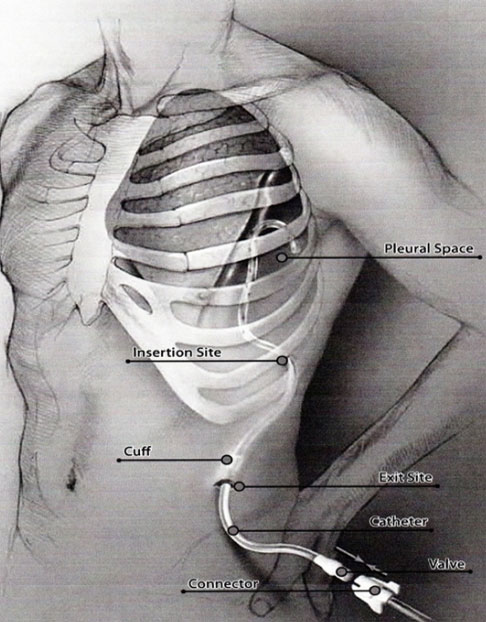Indwelling Pleural Catheters (IPCs)/Tunnelled Pleural Catheters
Why IPC’s?
When patients experience recurrent accumulation of fluid around their lungs, with resulting symptoms (shortness of breath, cough, discomfort) there are few options for treatment. A pleurodesis is often recommended, but does involve a potentially prolonged hospital stay, possible surgery, and discomfort. There is also a significant potential failure rate when pleurodesis is attempted. An IPC offers an alternative option.
What is an IPC?
IPCs are inserted into the pleural space and tunneled under the skin.
This allows them to stay in place for prolonged periods of time (months if necessary).
Possible advantages of an IPC:
- Day procedure (no hospitilisation necessary)
- Local anaesthetic only (no sedation required)
- Less painful than a chemical or surgical pleurodesis
- Patient can self-manage their drainages
- Relieve symptoms as they occur
- Avoid further related hospital admissions
Who is right for an IPC?
IPCs are not appropriate for everyone with recurrent pleural effusions, and should be considered in consultation with a pleural disease specialist

Note:
Any surgical or invasive procedure carries risks. Before proceeding, you should seek a second opinion from an appropriately qualified health practitioner.
For more information about Indwelling Pleural Catheter: Read this article

